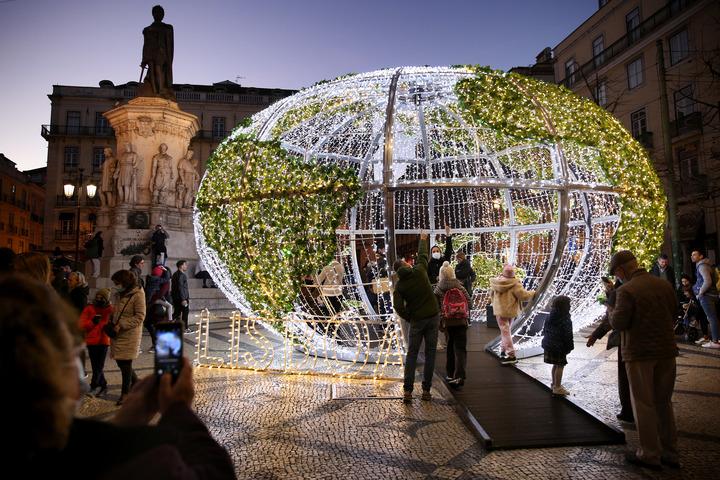MACAO, July 6 (Xinhua) -- From the Confucianism classic Four Books, poems by renowned Chinese poets like Li Bai and Tao Yuanming, to the Chinese painting masterpieces, a group of Portuguese literati living in Macao have dived deep into the Chinese culture and worked to present its essence to the Portuguese-speaking public.
The books, translated into Portuguese, have been published by Livros do Meio, a publishing house in China's Macao Special Administrative Region (SAR) which is dedicated to introducing works about China in the Portuguese language.
Carlos Morais Jose, who was born in Lisbon, Portugal and first came to Macao in 1990, founded the publishing house.
"It took years for the authors to translate Chinese classics into Portuguese," said Jose, who is also director of Hoje Macau, a local Portuguese-language newspaper.
"At first, I decided there should be a cultural section in the newspaper that would include the dissemination of Chinese culture and the publication of its fundamental texts, in order to bring the Portuguese-speaking community closer to it," he said. "We translated them bit by bit and then published them in book form."
Jose, who himself translated the Four Books, Chinese classic texts illustrating the core value and belief systems in Confucianism, into Portuguese, said the challenges for translation were huge, particularly in philosophical and literary terms.
"It is necessary to make many notes so that the readers acquire the necessary context to understand the works and their contents," he said. "For that, translators need to have a deep knowledge of the works."
Having earned a degree on anthropology even before moving to Macao over three decades ago, Jose said he has always been interested in the Chinese culture. "The Chinese culture is vast and deep in many areas."
He believes it would be good for people in Portuguese-speaking countries (PSCs) to understand the greatness of the Chinese history and culture and to have a glimpse of its complexity in many areas, from economics and thought to literature and fine arts.
However, he said, the current communication is not always done in the best way due to insufficient mutual understanding between the two sides.
He suggested that more classic works of Chinese culture and thought as well as relevant documentaries be translated into Portuguese and more stimuli be given for the work.
"Translation has been a lonely but exciting job. Personally, I have grown a lot with this work. As a Confucian would say, it has forced me to a serious inner cultivation. But financially, it has been a 'disaster,'" he joked.
Jose Manuel Mendes, who works for the publishing house, said that the readers of their books are mainly Portuguese-speaking public living in Macao and college students studying Portuguese in Macao or the Chinese mainland.
Recently, the publishing house decided to donate some books to Portuguese-related institutions in the Chinese mainland, including around 30 universities with Portuguese language majors and the Portuguese-language divisions of major media organizations.
"Of course we hope to reach more readers, not only in China, but also in PSCs," Mendes said. "One of the main challenges is tax, which will make the books very expensive in PSCs and thus barely profitable."
Jose said they will keep working and trying to reach PSCs. "We will stick with books about China. The subject is almost infinite," he said.




 A single purchase
A single purchase









